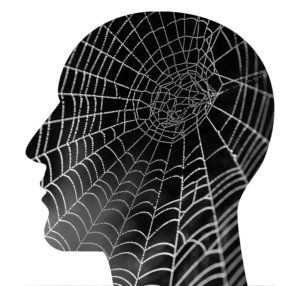 Within the practices of cognitive behavioral therapy, several organized series of therapeutic approaches exist. These methods of approaching behavioral challenges, such as body image disorders and addiction, are rooted in the concept that dysfunctional behaviors are the result of internal triggers. These triggers may be deep-rooted thoughts, limiting beliefs, feelings, or other psychological patterns or states.?
Within the practices of cognitive behavioral therapy, several organized series of therapeutic approaches exist. These methods of approaching behavioral challenges, such as body image disorders and addiction, are rooted in the concept that dysfunctional behaviors are the result of internal triggers. These triggers may be deep-rooted thoughts, limiting beliefs, feelings, or other psychological patterns or states.?
While the earliest treatments involved in CBT addressed these underlying states directly, a new series of treatments takes things one step further. Known as the third wave of cognitive behavioral therapy, these methods focus equally on the development of broadly applicable life skills. One viable analogy is that pre-CBT therapies addressed symptoms of an illness, early CBT cured the infection, and third wave CBT provides aftercare — reducing the chances of a condition reoccurring.?
One of the most thoroughly tested third wave CBT therapies is called dialectical behavioral therapy. Normally referred to as DBT, dialectical behavioral therapy was pioneered in the late 1980s by Dr. Marsha M. Linehan. DBT was developed by Dr. Linehan for the treatment of borderline personality disorder, in which it demonstrated a level of success that had eluded even earlier forms of CBT. Today, it is also used to treat a range of other disorders, such as body image disorders, addiction-related disorders, and suicidal tendencies.
How DBT Works
DBT focuses primarily on the psychosocial aspect of human psychology. It is based on the theory that many behavioral disorders emanate from a person’s tendency to react to common emotional states with unusual intensity. This is held to be particularly true of emotional stress factors that are associated with normal social relationships, such as romantic relationships, friendships, and the relationships between family members.?
 Individuals with such disorders as BPD, body image disorders, and addiction-related challenges experience a higher level of emotional stimulation from certain relationships (or from other stress factors, such as false belief systems). In addition to feeling associated emotional states more intensely than most people do, it takes longer for them to come down out of that state of emotional arousal.?
Individuals with such disorders as BPD, body image disorders, and addiction-related challenges experience a higher level of emotional stimulation from certain relationships (or from other stress factors, such as false belief systems). In addition to feeling associated emotional states more intensely than most people do, it takes longer for them to come down out of that state of emotional arousal.?
Dialectical behavioral therapy helps patients suffering from behavioral disorders, including addiction, anorexia, and other body image disorders. It facilitates the process of developing coping mechanisms to help bring their intense emotional reactions under control. It goes beyond the process of coping with the root problem: it develops the mindful self-awareness and intentional living skills necessary to expedite the development of additional coping skills in the future. This makes DBT an effective preventative measure against relapses, while providing patients with a widely applicable ability to confront as-yet unfamiliar stress factors later on.?
Dialectical Behavioral Therapy and Mindfulness
DBT is a mindfulness-based recovery system. Like many forms of guided therapy offered through West Coast Recovery Centers, it incorporates ancient Tibetan Buddhist principles, along with other holistic practices. It is a non-invasive technique, which an individual may pursue at their own pace. Once a treatment regimen has concluded, a wealth of self-counseling resources are available for those who wish to carry the associated exercises into other aspects of their lives.?




